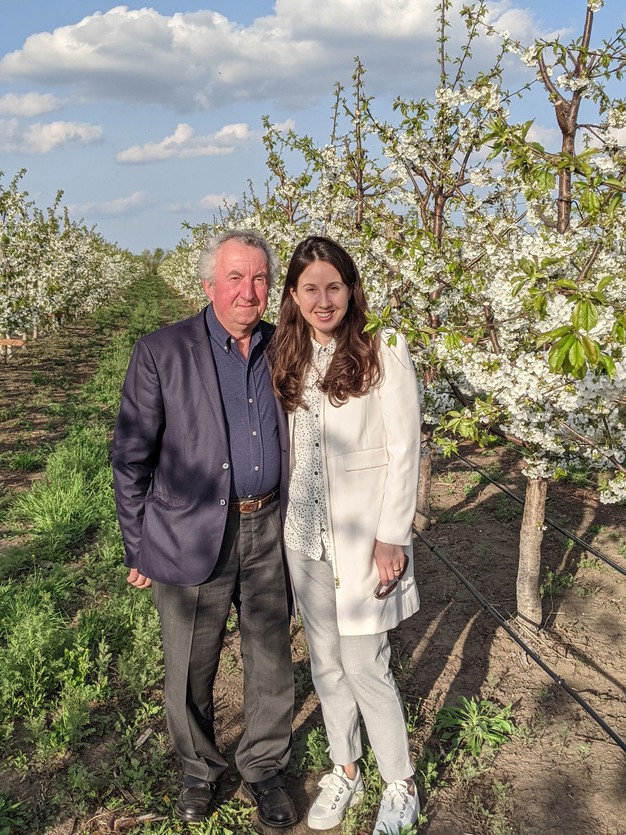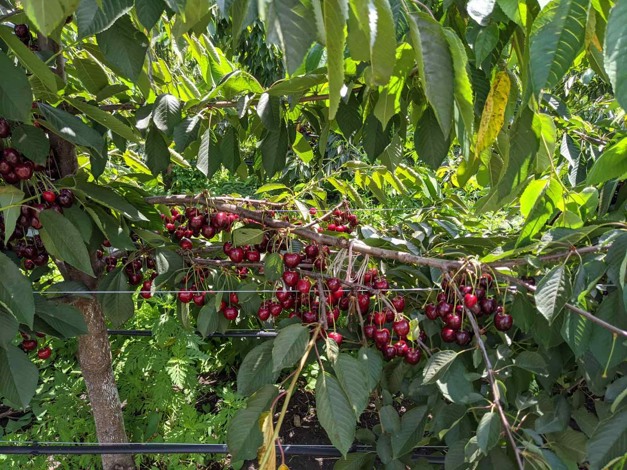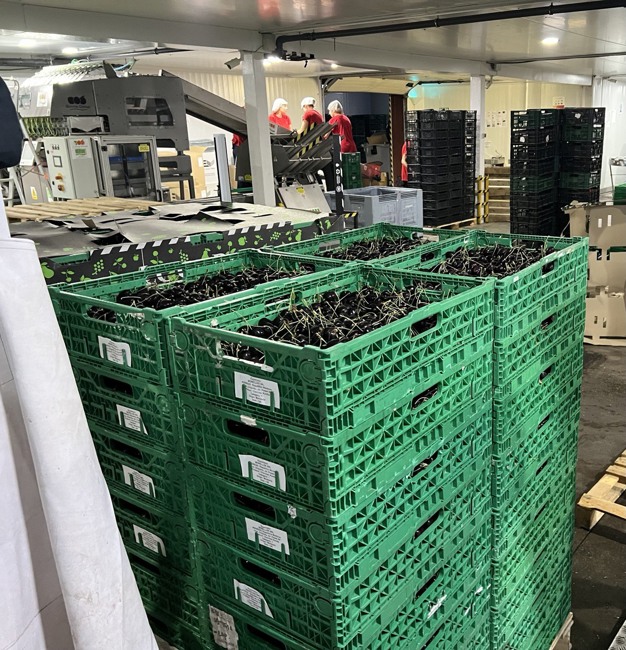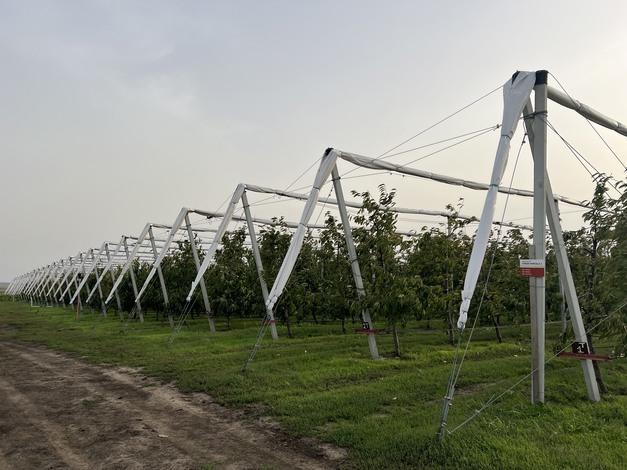Last year, due to downpours in late May/early June, the cherry crop in Spain's Jerte Valley - one of the largest cherry-growing regions in that country and Europe - failed miserably. Cherries were lost to cracking and rot; only about 30% could be saved. And, thus, it came to pass that Vera Ciobanu, CEO of the still young and small but ambitious Moldovan cherry-growing company Moreller, loaded a truck for an affected Spanish grower and flew to Madrid to be there when the fruit was unloaded and sorted.
"We have about ten hectares which we only planted in 2019," begins Vera, "so our harvest's not yet extensive, nor do we have tons of experience. I, therefore, thought it was a good idea to attend the sorting and packing of our cherries at an established Spanish grower. In addition to the expertise we gained, it was encouraging to see there was minimal wastage in sorting. The customer was very satisfied, and our cherries were on the shelves of one of the largest Spanish retailers within days."

Vasile Tasca and his daughter Vera in the cherry orchard
Hectare per hectare
It was only in 2018 that Vasile Tasca, Vera's father, and that of four more daughters and a son, began buying up land in his home village in central Moldova on the banks of the Dniester River. He did so hectare by hectare, and in 2024, the tally stands at 25, though Vera says it will not stop there. "We all decided to do something with the land our father was buying up, and since he couldn't stop talking about the beautiful cherry orchards in Turkey that, as a truck driver, he saw in bloom year after year on his travels, the choice was quickly made. For a while, we considered walnuts, but our hearts and a thorough soil analysis were the deciding factors," she says.

Drip irrigation helps to achieve beautiful cherries
They looked for trees in Serbia and the Netherlands but finally found them in Belgium. "After some searching, we ended up at Depa-Fruit, a nursery with knowledge of Europe's different cherry growing areas. We currently have the Regina, Kordia, and Tamara varieties of Gisela 5 and 6 rhizomes in our orchards."
This year to Germany and Belgium
After Moreller assisted that Spanish grower last year, it sent a truck of Tamara cherries - a somewhat lighter-colored variety harvested earlier than Regina and Kordia - to a German importer this year. "We have a hydrocooler, but sorted those cherries on a Unitec machine at Staragro, a neighboring grower. We, though, want to have all post-harvest infrastructure in-house in three years. Along with hydrocooling, we want to have cold rooms and a sorting and packing machine powered by solar energy," says Vera.

Cherries ready to leave for abroad
This season, they were sending their Kordia and Regina cherries in IFCO crates to that Belgian grower, where, after being sorted, they eventually reached the Rungis wholesale market in France. "This year's crop, however, wasn't good. Of our 80-ton production potential, we picked only 25."
"The small harvest is mainly because of disappointing pollination. Additionally, the few fruits hanging on the trees suffered rain just before harvest. The cherries protected by rain nets were minimally affected, so our priority is to gradually equip the entire orchard with that kind of protection. Someone else can always do your sorting, but they can't stop the rain for you," the CEO explains.

Part of the orchard is already equipped with rain protection
Diversifying cherry varieties
"Additionally, we are focusing on diversifying our cherry varieties to meet market demand. In this regard, we have started experimenting with new varieties that are more resilient to extreme weather conditions." Each year, the company plants around 3 hectares of cherries, aiming for a minimum harvest of 300 tons in the near future. They plant gradually to ensure they can equip the orchards with all necessary protection equipment for a bountiful, beautiful and tasty harvest.
Vera and her family are a Christian family, and their values inspire them to seek the best for people. Vera emphasizes her love for God, family and Moldova, and through their efforts, she and her family hope to contribute significantly to the development of the country.
Up to Scandinavia
After several good experiences in Spain, Germany, and Belgium, the company is determined to, after expanding its acreage and building its packing facility, establish long-term partnerships with European clients. "Perhaps in Scandinavia. Prices are good in Norway and Sweden and their cherry season starts when ours ends. So the sales window is also right. We visited a retailer there a few years ago, taking along several kilos of cherries in a small refrigerator. They had absolutely no complaints regarding its quality, but we can't deliver sufficient volumes to sign up for a program there. Still, that will come," Vera concludes with determination.
Moreller is GlobalGAP and GRASP certified and will be at the upcoming Fruit Attraction in Madrid. You can find the company at the joint Moldova Fruct sector organization's stand, 10D18.
 For more information:
For more information:
Vera Ciobanu
Moreller Ltd
Chisinau, Moldova
Mob: +373 680 444 86
[email protected]
https://moreller.md/
